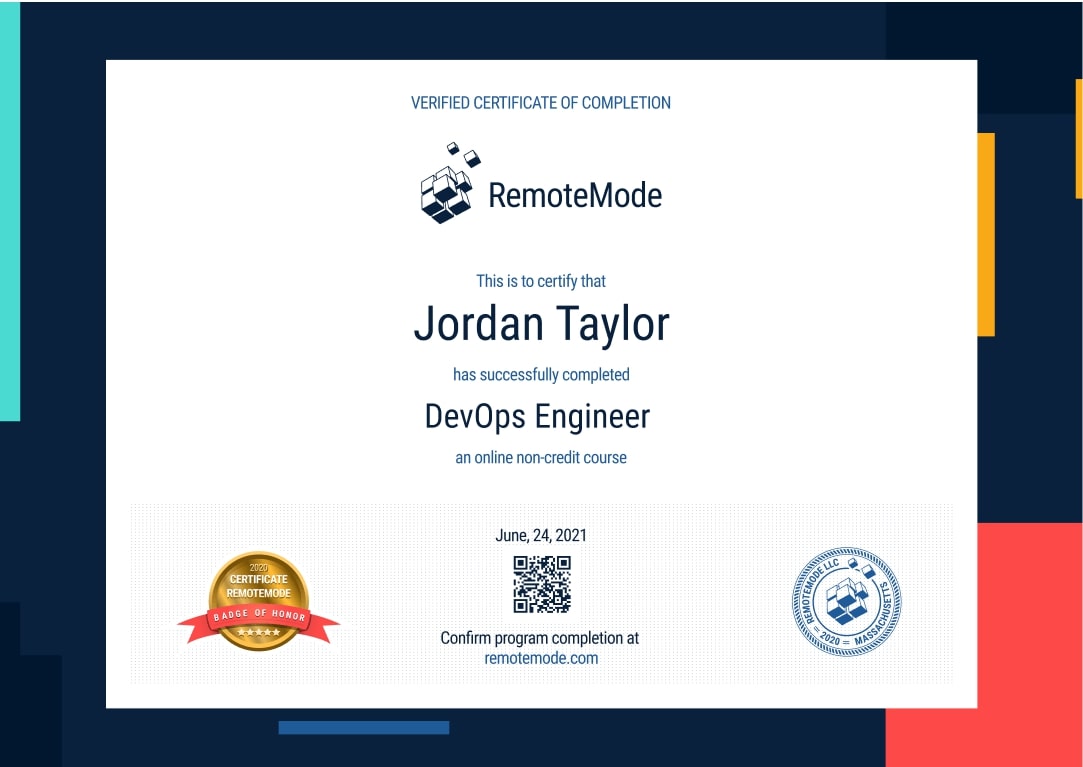Become an Azure Cloud Engineer
Build and manage systems for one of the largest cloud infrastructures built. Use Microsoft Azure’s platform, tools, and services to manage applications for some of the biggest companies in the world. Get familiar with cloud computing and how to effectively operate it.
- 6-month long course
- 229 lessons
- 6 hours per week
- 148 hours



Mission Forecast for Microsoft Azure Cloud Engineers
Landing Zone
Microsoft Azure is the biggest public Cloud computing platform ever created. Applications continually are adapted for the cloud and the choice for these developers is typically binary. Since Azure has a larger market share, that calls for a greater need for Azure engineers. Cloud-based applications and implementations are growing rapidly, and the need for good engineers is projected to increase by 29% in the next 4 years, and another 11% in the next 9.
Mission Objective (Who’s Hiring Right Now)
Azure Cloud Engineer Overview
As an Azure cloud engineer, you will not only be on the cutting-edge of technology, you will also be securing a position as a developer for the largest cloud computing platform created. Cloud computing is understood, but still considered a new technology. Start learning today and secure your position as a leader in the industry.
- + 6-month long course
- + 6 hours per week, go at your own pace
- + 229 on-demand lessons
- + 148 hours of material
- + Receive a certificate confirming your training
- + Participate in real-life Virtual Lab projects
- Design networks that connect to Azure systems.
- Understand how the architecture works and how to modify it.
- Monitor and manage cloud infrastructure.
- Ensure the security of your company’s data.
- Troubleshoot and be able to explain solutions.
- Improve architecture as needed.
Prepare for Liftoff
Microsoft Azure Services
Candidates with non-technical backgrounds or some experience with cloud-based solutions and services should take the AZ-900 Microsoft Azure Fundamentals Exam.
About the Course
This course is designed to help candidates prepare for the certification by providing them with a comprehensive set of learning materials in the form of video tutorials that present lessons, hands-on demonstrations, and practical insights to ace the Microsoft Azure Fundamentals certification.
At the very least, a certification with Azure can provide a big boost on candidates’ qualifications, helping them to get to a cloud career or the next step from their current position. So plunge into this course and prepare to be a certified Microsoft Azure Services professional.
Consisting of nine chapters, this course will assist you in studying for the AZ-900: Microsoft Azure Fundamentals test. This is one of the few courses that will help you prepare for the AZ-900 certification exam. The key concepts and abilities examined in the cloud concepts and core Microsoft Azure services exam domains are taught in this course.
Who is this course for?
This course is designed for individuals who are just getting started in IT, as well as experienced IT pros and managers of IT professionals who have a solid understanding of Windows user interface and navigation and want to begin working with cloud resources and products.
Also, IT professionals who are just beginning to work with Microsoft Azure and want to learn about Microsoft Azure offerings and get hands-on experience with the product are most welcome to take this course.
Course Prerequisites
It is assumed that course participants have a basic understanding of computers. Basic computing ideas and vocabulary, as well as broad technological concepts such as networking, storage, compute, application support, and application development, should be acquainted with students. The notion of application programming interfaces, or APIs, should also be familiar to students.
A high level of knowledge with relevant Microsoft products such as Dynamics 365 and Office 365 is advantageous but not required.
Microsoft Azure Services Overview
This course covers everything you need to get started with Microsoft Azure, whether you're new to cloud computing or have previous cloud expertise. It introduces you to the fundamental principles and services of Microsoft Azure. You'll discover the fundamentals of cloud computing, as well as its benefits and how to select the best Microsoft Azure solution for various business scenarios. You'll construct and test Microsoft Azure resources for free using the Microsoft Azure portal and a sandbox. You don't need to know how to code or script to do this.
You'll learn about a few of the database and big data services that Microsoft Azure has to offer. You'll also learn how to use Microsoft Azure virtualization capabilities to help your apps scale out rapidly and efficiently in response to rising demand. Finally, you'll discover how to use Microsoft Azure's many storages and virtual network options.
The following segment details the specific topics and coverage under each topic.
Part 1: Overview and Storage – the course begins with the chapter introducing Azure and Azure Storage.
Part 2: Network Services – this chapter sets as an introduction to Azure Network Services and security groups, interfaces, and VNets.
Part 3: Compute Services – this installment presents Azure Compute, VM, and how to Monitor and Backup
Part 4: Apps and Database – in this segment, Application Building blocks, Mobile Apps, and the Azure Notification Hub will be tackled. Azure Database Services, SQL DB Monitoring, and the Azure Data Factory will also be discussed.
Part 5: Big Data – this chapter presents the Azure Big Data Solution, Data Bricks, and Power BI.
Part 6: Enterprise App Integration – in this unit, learners will learn about Azure Enterprise App Integration, the Azure Service Bus, and Data Gateway.
Part 7: Internet of Things – this segment revolves around the Azure Internet of Things, the IOT Hub, Stream Analytics, and device provisioning.
Part 8: Security – This chapter presents Azure Security, Conditional Access, policies, and Security Center.
Part 9: Monitoring and Diagnostics – the final chapter of the course enables learners to understand Azure Monitoring and Activity logs, including Application Insights

Mission Control
- Stay focused with a mentor’s help and support
- Build a real portfolio with Virtual Lab Projects
- Compete with classmates in a virtual classroom
- Measure your progress with the Activity Tracking Log
- Make sure you get the job with resume help and interview assistance
In Collaboration with
Chart Your Trajectory (229 videos 71 hours)
Certificate of Completion
- Receive a certificate recognized by prevalent companies confirming your training
- Complete real projects in Virtual Labs
- Go at your own pace, learn your way
- Access course videos and materials 24 hours a day
- Take practical quizzes to keep you up to speed
- Classes created and mentored by industry leaders

Grow into an Azure Cloud Engineer
As Microsoft Azure grows, engineers will be pushing the platform to new levels. Become one of the engineers on the cutting edges of technology work with some of the most advanced tools the industry has to offer.
Program Forecast
- 6 months long, 6 hours per week
- 229 lessons in 148 hours
- Learn at your own pace
Virtual Lab
- Real Projects
- Create a working portfolio
- Receive expert feedback and mentoring
Career Services
- Interview preparation
- Resumé assistance
- Help with LinkedIn networking
Request More Information
View pricing and financing options